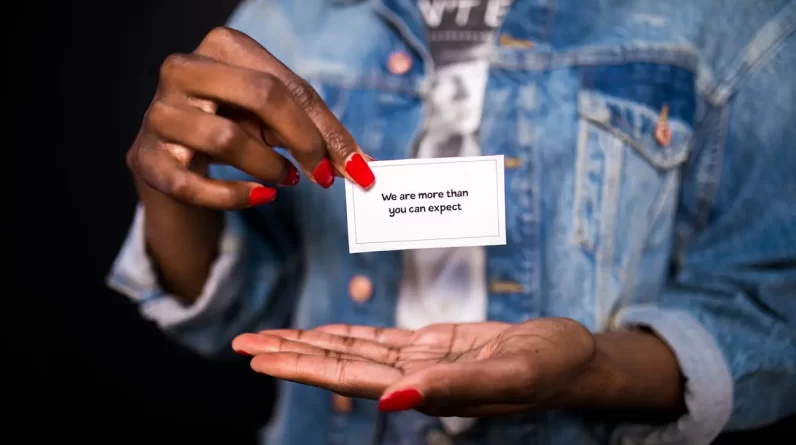
Forgiveness. Just the word can stir up a whirlwind of emotions.
It’s a universal concept, something we all wrestle with at some point in our lives. Whether it’s forgiving someone who hurt us, or seeking forgiveness for our own mistakes, the journey is deeply personal – and often challenging.
We’ve all heard about the benefits of forgiveness—it can bring peace, reduce stress, and heal emotional wounds.
So today, we’re embarking on a fascinating journey across the globe, exploring how various cultures and spiritual traditions approach forgiveness.
Each tradition offers unique practices that have been honed over centuries, deeply rooted in their beliefs and ways of life. From heartfelt prayers to meditative chants, these practices are as diverse as the people who practice them.
Forgiveness in Christianity
In the Christian tradition, forgiveness is at the heart of faith. It’s not just a one-time act, but a continual practice woven into daily life. Two key practices stand out: prayer and confession.
Prayer and Confession
Prayer in Christianity is a powerful tool for seeking and granting forgiveness.
When Christians pray, they often turn to the Lord’s Prayer, a guiding beacon that includes the plea,
“Forgive us our trespasses, as we forgive those who trespass against us.”
This simple yet profound line reminds believers of the importance of forgiving others as they seek forgiveness themselves.
Confession is another key practice in Christianity.
It involves admitting one’s sins, either privately to God or to a priest in a confessional setting. This act requires courage and honesty, making it a humbling experience.
Through confession, Christians believe they receive God’s grace and mercy, which allows them to start fresh with a clean slate. This idea is well illustrated in James 5:16:
“Therefore, confess your sins to each other and pray for each other so that you may be healed.”
These practices, rooted in centuries-old traditions, provide a path to forgiveness that is deeply personal and spiritually enriching. They remind Christians that forgiveness is a journey—a process of letting go, healing, and moving forward with a renewed sense of peace and grace.
Forgiveness in Buddhism
In Buddhism, forgiveness is a vital part of the path to enlightenment.
It’s about letting go of anger, resentment, and the pain that binds us. The practices of meditation and Loving-Kindness (Metta) are at the heart of this process.
Meditation and Loving-Kindness (Metta) Practice
Meditation in Buddhism isn’t just about quieting the mind; it’s also a profound tool for inner transformation.
When it comes to forgiveness, meditative practices help individuals:
- confront their emotions
- understand their origins
- and ultimately release them
One specific meditation practice, known as Loving-Kindness or Metta, is particularly powerful for fostering forgiveness.
Metta meditation involves silently repeating phrases that wish good things for oneself and others. These phrases might include,
“May I be happy. May I be healthy. May I be safe. May I live with ease.”
Once the practitioner feels these positive emotions for themselves, they extend the wishes to others, even to those who have hurt them. This practice helps to slowly break down feelings of anger and resentment, replacing them with compassion and understanding.
Buddhist teachings, especially those by revered monks and texts like the Dhammapada, emphasize that holding onto anger is like grasping a hot coal with the intent of throwing it at someone else—you are the one who gets burned.
Through meditation and Metta, Buddhists learn to release this coal, healing themselves and opening the door to genuine forgiveness.
These practices highlight the Buddhist belief that forgiveness is not about condoning the actions of others, but about freeing oneself from the chains of negative emotions.
By embracing meditation and loving-kindness, individuals can find a path to peace, compassion, and true liberation from suffering.
Forgiveness in Islam
Forgiveness is very important in Islam, and it’s a big part of daily worship and spiritual practice.
Muslims seek forgiveness through dua (supplication) and Istighfar (seeking forgiveness), which are key parts of their faith. Dua is a personal prayer where Muslims ask Allah for guidance, help, and forgiveness, often during quiet, thoughtful moments.
A common dua for forgiveness is,
“O Allah, You are the Most Forgiving, and You love forgiveness; so forgive me.”
Istighfar involves repeatedly saying “Astaghfirullah,” meaning “I seek forgiveness from Allah,” with true regret and a promise to make things right.
Islamic teachings in the Quran and Hadiths emphasize the importance of forgiveness.
The Quran states, “And whoever forgives and makes reconciliation, his reward is from Allah” (Surah Ash-Shura 42:40), highlighting that forgiving others and seeking forgiveness are acts of faith and devotion that bring one closer to God.
These practices help Muslims release guilt, seek peace, and renew their spiritual connection with Allah, illustrating that forgiveness is both a personal and divine process fostering tranquility and spiritual growth.
Forgiveness in Hinduism
In Hinduism, forgiveness is closely linked with karma and dharma, where a person’s actions and intentions are important for their spiritual journey.
Two main ways to seek forgiveness are chanting mantras and performing pujas (rituals).
Mantras are sacred sounds or phrases believed to have spiritual power. A popular forgiveness mantra is the Gayatri Mantra, which is chanted to bring in divine energy and wisdom, helping people cleanse their hearts and minds from negative emotions.
Performing pujas, which are rituals involving offerings and prayers to deities, also plays a significant role. These ceremonies often include acts of repentance and asking for forgiveness, creating a sacred space for spiritual renewal and connection.
Hindu scriptures and teachings by spiritual leaders stress the powerful effects of these practices.
The Bhagavad Gita, for example, encourages people to forgive others to achieve inner peace and spiritual growth. When people chant mantras and perform pujas, they develop humility and admit their imperfections while seeking divine grace.
These practices help people let go of guilt and resentment and also help them understand themselves better and see the connections between all beings, leading to a more peaceful and compassionate life.
Forgiveness in Indigenous Cultures
Forgiveness in many indigenous cultures is a shared and holistic practice, often based on rituals and ceremonies passed down through generations.
These traditions focus on restoring harmony within the community and with nature. For example, smudging involves burning sage or other sacred herbs to cleanse the mind, body, and spirit, creating a space for healing.
Ceremonies like the Lakota’s “Wiping of the Tears” provide a structured way for people to process grief and forgive themselves and others, fostering a sense of peace and renewal in the community.
Indigenous teachings often emphasize the interconnectedness of all life and the need to keep balance and harmony.
Forgiveness isn’t just a personal act but a group effort to heal relationships and the whole community.
Elders and spiritual leaders are very important in this process. They guide people through these practices and make sure the traditions’ wisdom and integrity are maintained.
Forgiveness in Judaism
In Judaism, forgiveness is very important, especially during special times like Yom Kippur and Tashlich.
Yom Kippur, the Day of Atonement, is the holiest day of the Jewish year. It is a time for fasting, prayer, and asking for forgiveness from God and others. According to Jewish tradition, you must make amends with those you’ve wronged before seeking forgiveness from God.
This day involves deep reflection and repentance, providing a powerful chance for personal and community renewal.
Tashlich is another important practice during the Jewish New Year, Rosh Hashanah. In this ritual, people go to a body of water and symbolically cast off their sins by throwing pieces of bread or pebbles into the water.
This act represents washing away past wrongs and starting fresh without burdens. The teachings of the Torah and the guidance of rabbis emphasize the importance of forgiveness and reconciliation, encouraging people to strive for peace and harmony in their relationships.
Forgiveness in Taoism
In Taoism, forgiveness is seen as a way to achieve inner harmony and balance, fitting with the goal of living according to the Tao, or the Way.
Taoist practices like Tai Chi and Qi Gong are not just physical exercises, but also spiritual disciplines that help develop forgiveness. These practices aim to balance the body’s energy, or qi, and promote a peaceful, harmonious state of mind.
By practicing these slow, careful movements, people learn to let go of negative emotions like anger and resentment, leading to a sense of inner calm and clarity.
Taoist teachings stress the importance of letting go of negative emotions to keep harmony within oneself and with the universe.
Texts like the Tao Te Ching highlight virtues like compassion, humility, and forgiveness as key to living a balanced life.
Practicing Tai Chi and Qi Gong helps people embody these principles by cleansing their minds and hearts of grudges and ill will. Through these practices, forgiveness naturally becomes a part of living in harmony with the Tao, leading to a state of peace and spiritual well-being.
Forgiveness: A Universal Thread
Forgiveness is a universal thread that weaves through the fabric of human experience, touching every culture and spiritual tradition in profound ways.
Various practices, steeped in centuries of wisdom and devotion, provide diverse yet deeply meaningful ways to release resentment, heal emotional wounds, and find inner peace.
As we explore these varied forgiveness practices, we see a common theme: the journey to forgiveness is both deeply personal and profoundly communal.
It’s about:
- letting go of anger
- embracing humility
- and seeking reconciliation, not only with others but within ourselves
Whether through silent prayer, meditative chants, physical movement, or sacred rituals, these practices invite us to cleanse our hearts and minds, fostering a sense of peace and spiritual growth.
By learning from these diverse traditions, we can find inspiration and guidance on our own paths to forgiveness, creating a more compassionate and harmonious world.
Photo by Los Muertos Crew







